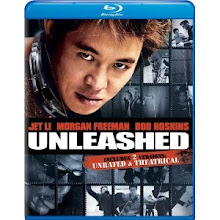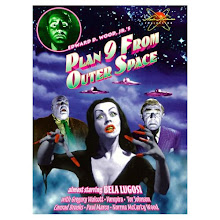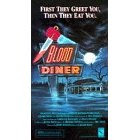by Jason Pyles
Note to Readers: Remember, because this is a film-discussion blog, we often discuss spoilers. My comments below are spoiler-ridden, so watch the film first.
Contrast Tilda Swinton’s performance in “Julia” with her role in “Michael Clayton” and you’ll see some opposite-end-of-the-spectrum range. Wow. (She played these roles back to back, near as I can tell from her filmography.)
I often resent the overused assessment that an actor’s performance is “brave,” but I have to resort to it in this instance. Recently I was reading a book about acting, and it criticized many female actors who only take the “pretty” roles, noting that such actresses miss out on rich opportunities. (Indeed, as I thought about it, Charlize Theron won an Oscar for Best Actress in a Leading role for her performance in “Monster,” a decidedly “unpretty” part.)
Swinton’s Julia character is also a scary train wreck. There’s a moment in the film where another crazy lady (the kid’s mom) goes berserk on Julia, and I thought I was about to see the Kraken versus Medusa. I was literally jittery while watching this brief confrontation. I bring up this scene to illustrate a specific example of Swinton’s nuanced performance: Initially Julia strikes the disturbed mom, but when said mom becomes the mayor of Crazy Town right before her eyes, Julia backs down and backs away carefully. A less intelligent performance would portray Julia as a full-throttle maniac — all the time, no matter what — but even Hannibal Lecter had his sensible moments.
At its core, “Julia” is a tale of redemption, which is quite a feat considering Julia has almost no redemptive qualities. I was impressed that the writers gave us some ironic surprises (such as the double, double-cross in Mexico) and other neat turn-arounds, avoided predictability and maintained a fair degree of realism. Let’s face it, we have no idea how this mess will end, and when it does end, our anti-hero protagonist’s life is still precarious. Yet the conclusion is satisfying. We can imagine how bleakly her life might proceed henceforth.
In summary, “Julia” is a fine example of both a character-driven performance and a smartly written story. I consider it an unusual film because its female protagonist is almost completely devoid of maternal instincts. And I suppose this is my one criticism of the film: Eventually Julia shows some humanity and starts to develop some affection toward the kid. This isn’t the Julia that I met at the beginning of the movie. And while a character’s arc should show some change, this particular character surely would have taken off altogether once she got the 2 million dollars.





























































